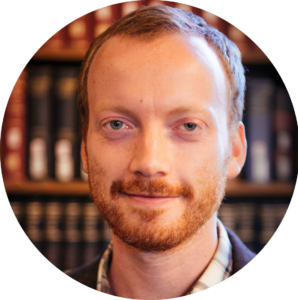
Eugene Chislenko
Steering Committee Chair & Forum and Conference Organizer
Eugene Chislenko (any pronouns) is an Assistant Professor at Temple University, teaching and writing mainly in ethics and moral psychology. He has worked with the Sunrise Movement and 350.org and co-founded Philosophers for Sustainability in 2019. You can find some of his thoughts on sustainability in “The Role of Philosophers in Climate Change.”
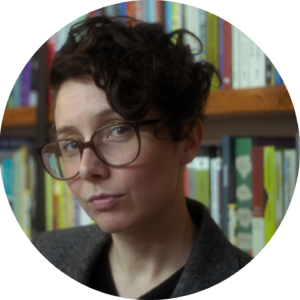
Rebecca Millsop
Steering Committee
Rebecca Millsop (she/her) is a co-founder of Philosophers for Sustainability. As both an educator and artist, she is passionate about how ideas, conversation, and collective action can lead to real, demonstrable change.

Simona Capisani
Steering Committee & Conference Organizer
Simona Capisani (she/her) is an Assistant Professor of Philosophy at Durham University in the UK. Her current work addresses the moral, political, and governance challenges of “climate mobilities,” including displacement, migration, and immobilities. She currently serves as an Officer for the International Society for Environmental Ethics (ISEE), is the co-founder of the interdisciplinary Climate Mobilities Working Group supported by the Center for Human Values (UCHV) at Princeton University, and is the Faculty Lead for Arts and Humanities at Durham University's Centre for Sustainable Development Law & Policy.

Eric Godoy
Steering Committee & E-vents Team Co-Leader
Eric Godoy (he/him) is an Associate Professor of Philosophy at Illinois State University. He works in ethics, social-political thought, and environmental philosophy. In his spare time he enjoys both making and playing both music and board games.
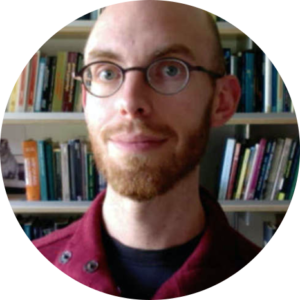
Colin Marshall
Steering Committee & E-vents Team Co-Leader
Colin Marshall (he/him) is Associate Professor of Philosophy at the University of Washington in Seattle, where he works on ethics and the history of European philosophy. As a member of the PfS E-vents team, Colin had the honor of co-leading the APA 2+1 Campaign, and continues to look for opportunities for academic philosophy to support sustainability and inclusivity.
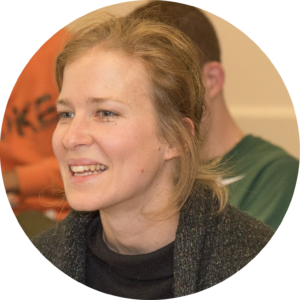
Nora Mills Boyd
Steering Committee
Nora Mills Boyd (she/they) is an Assistant Professor of Philosophy at Siena College. Her research focuses on empiricism, philosophy of physics, and philosophy of experiment. She loves teaching Environmental Ethics, mentoring the Siena Organic Gardens and Apiary, and working with community partners on urban agriculture and environmental justice projects. Ask her about living in New Mexico, Hawaii, Carriacou, and beyond.

Kian Mintz-Woo
Steering Committee
Kian Mintz-Woo (he/him) is a moral philosopher at University College Cork (Ireland) and the International Institute for Applied Systems Analysis (Austria) working on climate responsibility, carbon taxes and climate economics. He is part of the Irish Government's Carbon Budget Working Group recommending climate pathways for Ireland and was awarded the International Society for Environmental Ethics 2021 Andrew Light Award for Public Philosophy. You can find out more about him at his Google Scholar page or his university webpage.

Kaitlin Pettit
Membership Coordinator & Workshop Program Coordinator
An environmental ethicist by training, Kaitlin (she/her) received her PhD from the University of Utah in 2022, defending her dissertation on corporate moral responsibility in response to climate change. She is currently the CEO of the nonprofit Toilet Equity, working to bring compost toilets to the unhoused community of western Colorado in service of community and environmental health. A Colorado native, Kaitlin currently lives in Utah with her husband, daughter, and dog, working to grow as much of their food as possible in a suburban garden.

Sarah (Sadie) Warren
Technology Coordinator
Sarah (Sadie) Warren (she/her) is a Research Associate with the University of Toronto Centre for Ethics. Her research, broadly concerned with self-world relations and their implications for ecological good (especially biodiversity), works between philosophical traditions such as American pragmatism, phenomenology, and new materialism. She recently assumed the role of Associate Editor with the journal Environmental Humanities, and—as a public and digital scholarship enthusiast—also acts as Social Media Manager for the Mycological Society of Toronto. She enjoys spending her free time baking sourdough, devising unorthodox DIY projects, and photographing local flora and fungi.

Karl Aho
Social Media
Karl Aho (he/him) is an Associate Professor of Philosophy at Tarleton State University, a founding member of the Texas A&M system located in the greater Fort Worth area. He is also part of the graduate faculty for Tarleton’s Environmental Science master’s program. Within the philosophy profession, he serves on the board of the American Association of Philosophy Teachers and on virtual programming committees for both the AAPT and the APA.
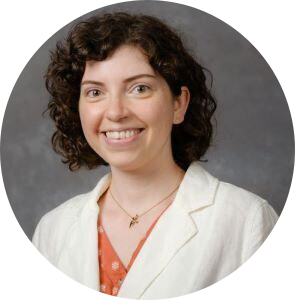
Amanda Corris
Workshop Program Coordinator
Amanda Corris is an Assistant Professor of Philosophy at Wake Forest University. Her research focuses on the relationship between mind, life, and the environment, and specifically how living beings, as embodied agents, both shape and are shaped by their environments.
Philosophers for Sustainability is an international group of philosophers that aims to encourage our profession to take leadership on climate change and environmental sustainability. We agree with the current scientific consensus that climate change is real, caused largely by human activity, already having significant effects, disproportionately impacting many of the groups that are underrepresented in philosophy, and poised to worsen dramatically within our lifetimes. We believe that everyone has a role to play in combating climate change and ensuring a sustainable future. And we believe that philosophers, despite our disproportionately large carbon footprints, are well positioned to think, teach, and lead effectively about the complex environmental issues we now have to face. We are attempting to integrate environmental issues into our work as philosophers, not only in our research, but, more immediately, in a wide range of philosophy courses and in our service to the profession. We have a few different projects underway, and are actively seeking new projects and new members. We welcome people from all areas of philosophy who are interested in stopping climate change and promoting sustainability in practice.
Our co-founders are Eugene Chislenko (Temple University) and Rebecca Millsop (University of Rhode Island). Our Membership Coordinator is Kaitlin Pettit (PhD, University of Utah), and our Technology Coordinator is Sarah (Sadie) Warren (University of Toronto). For more information, to join our email list for occasional announcements and updates, or to become a member, you can contact us at philosophersforsustainability@gmail.com.
Why We Care
According to the United Nations, “Climate change is the defining issue of our time and now is the defining moment to do something about it.” Major countries are missing the targets of a 2°C (3.8°F) global temperature increase, and, by various estimates, heading toward somewhere in the range of 3-6°C (4.7-11.4°F) average increase, with drastic and destabilizing effects on the earth’s climate. Since 1950, according to a report by the Institute for Public Policy Research the number of floods had increased 15-fold, extreme temperature events 20-fold, and wildfires 7-fold. These changes will continue to worsen, perhaps somewhat, perhaps much more drastically. Human-caused climate change is tremendously and, to a large extent irreversibly, damaging the habitat of our students and children, not to mention us.
Stopping the worst of the damage requires the rapid spread of the idea that climate change is a priority. We need everyone to do what they can, starting with the skills and positions each of us already has. Philosophers have a unique set of skills for thinking about complex problems. Some of these skills put us in a good position to help bring out the rapid spread of an idea, especially when the idea has a compelling rationale. We would like philosophers to use our skills to take leadership in stopping the worst effects of climate change and ensuring a sustainable future.